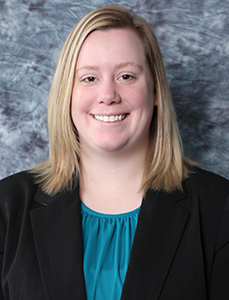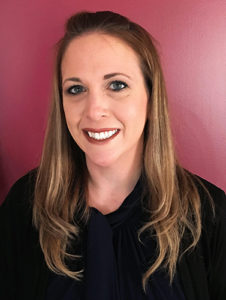As a parent, our biggest concerns for our children involve teaching them to be successful individuals who can advocate for themselves, providing them with an education to help them grow into successful adults, and keeping them safe. A common goal amongst all parents is to raise their children to be independently functioning adults. Typically, we help our children develop the skills necessary to become actively involved in a career, manage their money, and be able to provide for themselves. Beyond these skills, our children are also prepared with strategies to help keep themselves out of harm’s way. As a BCBA preparing females diagnosed with autism spectrum disorder (ASD) for these same life events, it is important to begin teaching many of these skills at a young age.

According to Chumlea et al. (2003), 90% of all US girls are menstruating by 13 years of age, which means the average age that girls are beginning to mature is between 10 and 12 years of age. The Centers for Disease Control and Prevention (CDC) estimates that one out of every 151 girls born in the United States will be diagnosed with ASD. Due to the vulnerability of individuals with ASD, and the decreased cognition, communication, and social skills, the rates of sexual abuse in females is roughly one out of every four females (CDC, 2018). So how do we help the female individuals navigate the intricacies of the social world and decrease the likelihood of these crimes and their vulnerability to sexual predators? When preparing female teenagers diagnosed with ASD for these life events, we must introduce skills early and teach them independence, ensuring they are individualized to the level of the learner.
While puberty may be an unfavored topic for families of girls with autism, it is important to discuss the need to educate these children on topics involving: identifying the proper name for their genitals, personal privacy, the skills necessary to maintain appropriate levels of hygiene, and who can help them with personal care skills. Often, these girls are comfortable with an adult being nearby most of their waking hours, and do not hesitate to change their clothes or toilet in front of these adults. Part of our instruction should include teaching these girls to seek out privacy whenever possible (e.g., close the stall door in a public bathroom). There is no single method to teach proper self-care, so it is important to identify the level of the learner and teach them, to the best of their abilities, how to be most independent. Self-care skills include any skill needed to ensure the hygienic cleanliness of the body in addition to caring for oneself during menses. The more independent a young woman can be greatly increases her independence and privacy, along with increasing her potential for involvement within the community and decreasing the likelihood of bacterial infections (Vaezey et al., 2016).

Jennifer Croner, MSEd, BCBA, LBS-PA

Stephanie Sigler, MS, BCBA, LBS-PA
While there is no meaningful difference in the age girls with autism and girls with other developmental disabilities first begin menstruating, several studies report that females with autism experience painful periods, heavy periods, menstrual hygiene issues, cyclical mood and behavioral changes, and an amplification of sensory issues and repetitive behaviors associated with autism (Steward et al., 2018). Several recent studies have surveyed girls with autism and their parents and caregivers, and have noted that menstruation is viewed by some as a distressing event during which preexisting challenges are exacerbated, potentially leading to reduced participation in work, social, and community life (Cummins, Pellicano, & Crane, 2018; Steward et al., 2018). Some of these potential problems can be lessened by increasing the knowledge of menstrual-related issues in both the young girls with autism and their families.
Females with autism should be taught personal hygiene skills to levels as independent as possible and at an early enough age that they can be independent prior to menstruation. Start with pre-requisite skills for feminine hygiene, such as: toileting procedures, including donning and doffing pants and underwear and wiping oneself after toileting; washing their body in the shower and/or tub, including hair care and appropriate cleansing of private areas; along with assessing any fine and gross motor skills necessary for completion of these skills and manipulation of the wrappers and placement of sanitary napkins and tampons. Following baseline measurements, task analyses outlining the specific steps each young girl will need to take to complete these skills should be taught using chaining procedures appropriate to the individual’s needs. It is important to recognize that the overuse of vocal prompting can inadvertently lead to teaching errors into the chain and may interrupt the development of the map of muscle memory necessary to complete the chain. Teach using error correction and errorless prompting when specific skills appear difficult and identify skills that may need to be taught in isolation. The use of visual aids (e.g., schedules, picture books, social stories, video modeling, etc.) can also be helpful for some learners. Consider other adaptations for individual learners (e.g., placing permanent marker lines on underwear to show where to lay the sanitary napkin), the use of loofahs on a wooden stick instead of a washcloth, or the use of a shampoo brush to promote independence whenever possible. Also, consider the need to teach the individual how to recognize when they should use the bathroom – this could be done through the introduction of a self-monitoring device, such as the “Octopus” watch which uses icons to increase independence with individual who aren’t able to tell time on an analog watch, to promote independence with following a bathroom schedule.
While we can’t predict the occurrence of sexual predators or other traumatic events potentially associated with their menses, we can decrease the likelihood that our female clients are at risk by introducing self-care skills to them from an early age. Maintaining independent levels of self-care and generalizing these skills into different environments significantly decreases the need for caregivers to be involved with private events such as maintaining feminine hygiene. As our clients become older and more involved with caregivers outside of their parents and the safe environment of their home, the need for these independent skills increases.
Stephanie Sigler, MS, BCBA, LBS-PA, is a Board-Certified Behavior Analyst and Jennifer Croner, MSEd, BCBA, LBS-PA, is Director of Clinical Services and Professional Development at Exceptional Learning, LLC.
For more information about Exceptional Learning, LLC, please contact our office via phone at (610) 287-4000 or visit our website at www.exceptional-learning.com.
References
Centers for Disease Control and Prevention (2018). Autism prevalence slightly higher in CDC’s ADDM Network. Retrieved from https://www.cdc.gov/media/releases/2018/p0426-autism-prevalence.html
Chumlea, W.C., Schubert, C.M., Roche, A.F., Kulin, H.E., Lee, P.A., Himes, J.H., & Sun, S.S. (2003). Age at menarche and racial comparisons in US girls. Pediatrics 111(1), 110-113; DOI: https://doi.org/10.1542/peds.111.1.110
Cummins, C., Pellicano, E., & Crane, L. (2018). Supporting minimally verbal autistic girls with intellectual disabilities through puberty: Perspectives of parents and educators. Journal of Autism and Developmental Disorders. https://doi.org/10.1007/s10803-018-3782-8
Steward, R., Crane, L., Roy, E.M., Remington, A., & Pellicano, E. (2018). “Life is much more difficult to manage during periods”: Autistic experiences of menstruation. Journal of Autism and Developmental Disorders, 48, 4287-4292. https://doi.org/10.1007/s10803-018-3664-0
Veazey, S.E., Valentino, A.L., Low, A.I., McElroy, A.R., & LeBlanc, L.A. (2015). Teaching feminine hygiene skills to young females with autism spectrum disorder and intellectual disability. Behavior analysis in practice, 9(2), 184–189. https://doi.org/10.1007/s40617-015-0065-0




